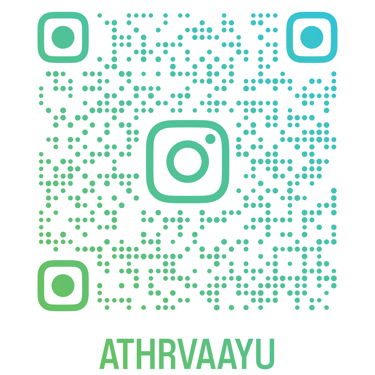How AI is Transforming Ayurvedic Research Labs in India: The Future of Traditional Medicine
Explore how Artificial Intelligence is transforming Ayurvedic research labs in India—digitizing ancient texts, accelerating herbal drug discovery, enhancing clinical trials, and personalizing treatments through Ayurgenomics. Discover the blend of tradition and technology shaping the future of holistic healthcare
AYURVEDAARTIFICIAL INTELLIGENCEBIOINFORAMTICSAYURGENOMICS
Nancy Pandey, AI Engineer
5/8/20243 min read


Ayurveda, the ancient Indian science of life, has been a cornerstone of holistic healthcare for over 5,000 years. It emphasizes balance, prevention, and natural remedies—principles that remain highly relevant even in today’s fast-paced, tech-driven world. But something fascinating is happening: Ayurveda is stepping into the digital age, and Artificial Intelligence (AI) is leading the way.
From the bustling research centers in Kerala to advanced government-backed facilities in Delhi, Ayurvedic labs across India are adopting AI to accelerate herbal drug discovery, validate centuries-old remedies, and bring precision to personalized treatment plans. This fusion of traditional wisdom and advanced computation isn’t just innovation—it’s a healthcare revolution in the making.
The Pre-AI Challenges in Ayurvedic Research
Before AI entered the picture, Ayurvedic research labs faced several hurdles:
Manual documentation of knowledge – Vast Ayurvedic texts like Charaka Samhita and Sushruta Samhita were preserved in Sanskrit, often difficult to decode and interpret for modern application.
Long research cycles – Validating herbal formulations could take years, from identification to clinical testing.
Limited scalability – A single lab could only handle a small number of experiments at a time.
Data silos – Herbal knowledge, clinical data, and experimental results often remained unlinked, slowing innovation.
How AI is Revolutionizing Ayurvedic Research Labs in India
1. Digitizing Ancient Manuscripts
AI-powered Natural Language Processing (NLP) tools are being used to scan, translate, and interpret ancient Ayurvedic texts.
Example: The Central Council for Research in Ayurvedic Sciences (CCRAS) has initiated projects to digitize classical Ayurvedic manuscripts so researchers can search them like a modern database.
Machine learning models can cross-reference this ancient knowledge with modern pharmacological data to identify promising herbs for specific diseases.
2. Predictive Herbal Formulation Discovery
AI algorithms can simulate how combinations of herbs might interact in the human body before physical trials.
Example: Indian startups like Niramai Health Analytix (though better known for cancer screening) are exploring AI modeling in herbal medicine research.
This predictive power reduces lab trial costs and speeds up new formulation development.
3. Enhancing Clinical Trials with AI
AI-powered data analytics can track patient progress, identify side effects early, and optimize dosage recommendations.
Platforms like eSanjeevani, India’s national telemedicine service, could integrate with Ayurvedic AI systems to collect patient data for real-world validation.
By using AI-driven patient segmentation, Ayurvedic treatments can be tested on diverse populations more efficiently.
4. Bridging Ayurveda with Modern Genomics
AI is helping combine Ayurgenomics—the study of linking Ayurvedic body types (Prakriti) with genetic profiles—with modern precision medicine.
Example: The CSIR-IGIB (Institute of Genomics and Integrative Biology) in Delhi is exploring AI-based mapping of Prakriti to genetic markers.
This could help personalize herbal treatments based on both Ayurvedic principles and DNA data.
5. Supply Chain and Quality Control Automation
AI systems in India are monitoring the sourcing of medicinal plants to ensure purity and sustainability.
Example: The National Medicinal Plants Board could benefit from AI-powered tracking to prevent adulteration in herbal raw materials.
Automated image recognition tools identify plant species accurately, reducing human error.
Real-World Indian Success Stories
AYUSH Grid: An Indian government initiative aiming to digitize Ayurveda and other traditional medicine systems, with AI playing a role in knowledge management and clinical integration.
Kerala’s Arya Vaidya Sala: Collaborating with tech firms to introduce AI in patient record analysis and treatment outcome tracking.
Banaras Hindu University’s Faculty of Ayurveda: Using AI for computational drug discovery in herbs like Ashwagandha and Guduchi.
Benefits of AI in Indian Ayurvedic Labs
Faster drug discovery – Cutting research timelines from years to months.
Scientific validation – Providing globally acceptable data on Ayurvedic formulations.
Personalized treatment – Combining Prakriti analysis with AI-driven health monitoring.
Increased global credibility – Positioning India as a leader in evidence-backed traditional medicine.
Challenges to Overcome
Data Standardization – Ayurvedic research data varies widely; standard formats are essential for AI models.
Lack of AI-trained Ayurvedic professionals – Cross-disciplinary training is needed.
Ethical and cultural considerations – Ensuring AI complements, not replaces, traditional Ayurvedic wisdom.
The Road Ahead
India stands at the cusp of a health-tech revolution where Ayurveda and AI could jointly address chronic lifestyle diseases, boost immunity, and promote preventive healthcare worldwide. With government support through AYUSH initiatives and private-sector AI innovation, the coming decade may see India exporting not just yoga and turmeric lattes, but AI-validated Ayurvedic therapies.
If done right, the combination of India’s rich heritage and cutting-edge AI could redefine global healthcare—where ancient roots meet digital brains.
FAQs
1. Is AI replacing Ayurvedic doctors in India?
No. AI supports Ayurvedic doctors by analyzing large data sets, but treatment decisions remain with trained practitioners.
2. Which Indian government body oversees AI in Ayurveda?
The Ministry of AYUSH, through bodies like CCRAS, is actively encouraging AI integration in Ayurveda research.
3. Can AI really validate Ayurvedic medicines scientifically?
Yes, AI can analyze clinical and molecular data to provide evidence-based validation for traditional formulations.
Final Takeaway
Artificial Intelligence isn’t here to westernize Ayurveda—it’s here to amplify it. By digitizing ancient knowledge, predicting herbal interactions, enhancing trials, and personalizing care, AI is giving India’s Ayurvedic research labs superpowers that our ancient Vaidyas could only dream of.
The message is clear: the world’s oldest medical system is ready for its most modern chapter.




